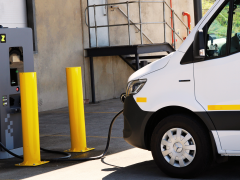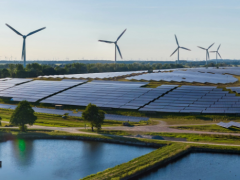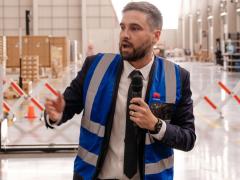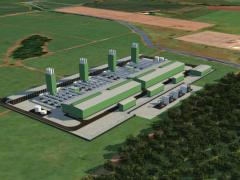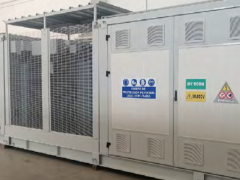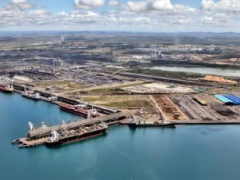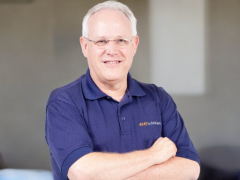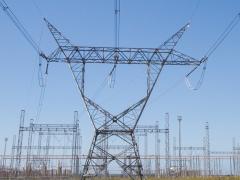Thyssenkrupp Uhde Chlorine Engineers’ chlor-alkali technology is based on the electrolysis process, whereby a direct electric current is passed through an aqueous solution of Sodium or potassium Chloride (NaCI/KCl) in a membrane electrolyser, causing the chemical decomposition of the solution in chlorine gas, hydrogen gas and a solution of caustic hydroxide.
Chlorine and caustic are chemical products that are used in countless industrial applications, such as plastic, polyurethanes, disinfectants, aluminium and titanium production and so on. The products of electrolysis can be also combined together for the production of Hydrochloric Acid and Sodium Hypochlorite (NaOCI) solutions, both widely used for industrial and domestic use. Hydrochloric acid can be further processed into products such as aluminium chlorohydrate (ACH) and poly-aluminium chloride (PAC).
“These products and derivatives are widely used by industries such as textile, plastic, pharmaceutical, pulp & paper, water treatment and mining,” explains Yurisha Singh, Proposals Engineer at Thyssenkrupp Uhde.

The company’s chlor-alkali technology has been developed over five decades of successful installations, and incorporates steady enhancements in design features that have led to improvements in reliability, product quality and energy efficiency.
A significant factor in a plant’s operating cost is on-stream time which Singh points out is largely dependent on the robustness of the electrolysis cells and the reliability of the materials. The company’s technology is based on the single-element membrane cell design which combines optimal material selection with simple maintenance. The proprietary single-element zero gap technology delivers a number of key benefits including significant energy savings, leak-proof operation, extended membrane service life and fast, simple replacement of the elements.
The firm offers two cost-effective chlorine production solutions, the 45 and the 15 – 20 tpd (tons per day) chlorine plants, supplied as modular skid-mounted units. Through standardised engineering and optimisation of its largely standardised compact cell house design, this company’s chlor-alkali plants deliver multiple benefits to customers including minimised space requirements, lowered investment costs and easy maintenance.
The modular skid-mounted plants consist of pre-assembled modules in steel skids. The modules are assembled in the workshop and are designed to fit standard containers.
“Our modular skid-mounted approach presents a simple, fast and cost-effective solution that addresses the need for small-scale chlorine producers and remotely located plants,” states Singh.
The pretested modules are quick, simple and cost-effective to transport to site. Once on site, construction and assembly is fast and easy with fewer civil and erection works requiring only a small team. Rapid project implementation and plant start-up time deliver substantial savings in terms of construction time and costs.”
As an engineering and licensor company, Thyssenkrupp Uhde Chlorine Engineers has successfully implemented over 600 electro-chemical projects world-wide. It has transferred its chlor-alkali technology from large scale stick-build facilities, to modular solutions on the African continent. A 45 tpd chlor-alkali facility is currently under construction in Tanzania, East Africa.
“We are also busy with numerous feasibility studies in sub-Saharan Africa,” concludes Singh.
Contact Thyssenkrupp Uhde, Phone 011 236 1000, info.tkissa@thyssenkrupp.com, www.thyssenkrupp-industrial-solutions.com


